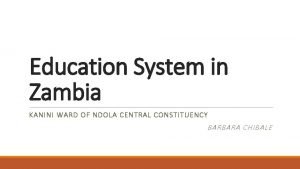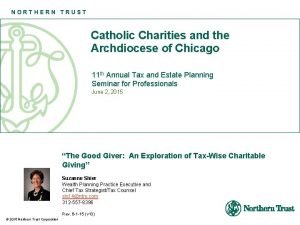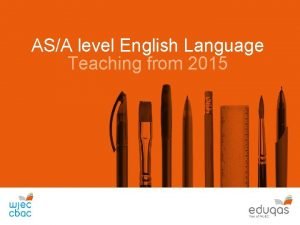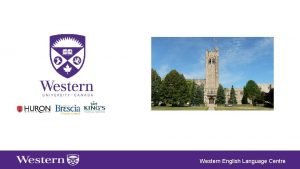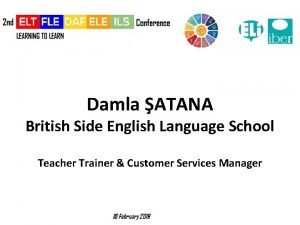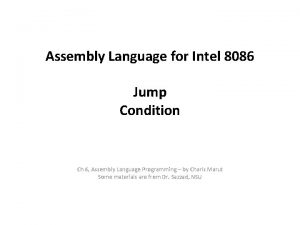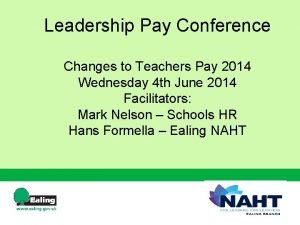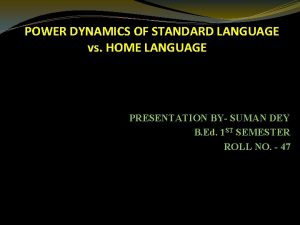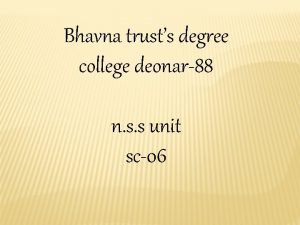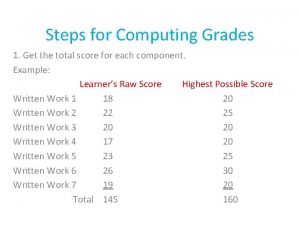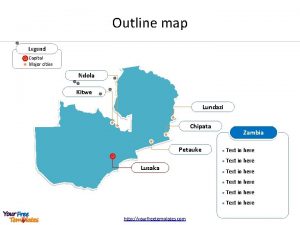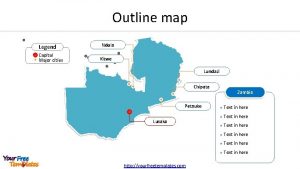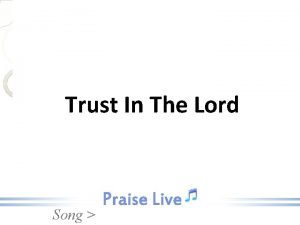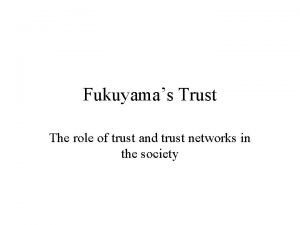NDOLA TRUST SCHOOL GRADE 8 ENGLISH LANGUAGE CONDITIONS











- Slides: 11

NDOLA TRUST SCHOOL GRADE 8 ENGLISH LANGUAGE CONDITIONS

CONDITION • • LIKELY OR PROBABLE CONDITION 1. If Peter asks Anna, she will marry him. 2. I will post the letters for you if I go to town this afternoon. 3. If they don’t hurry, they will miss the bus. NOTE: The verb in the ‘if-clause’ in this type of condition is in the Present Simple Tense (i. e. asks, go, don’t hurry). The verb in the main clause is in the future simple (i. e. will marry, will post, will miss).

• Also note that we use a comma when we begin a sentence with the ‘if-clause’. E. g. : (i) If Peter asks Anna, she will marry him. (ii) If they don’t hurry, they will miss the bus. Using unless to mean if …not Study the following sentences: E. g. : (i) If you do not study, you will fail the exam. (ii) They will get lost if they are not given proper directions.

CLASS EXERCISE 1. Write five sentences using the likely condition. - Remember to punctuate your work correctly. - Also, write neatly.

UNLIKELY, OR IMPROBABLE CONDITION • • Study the following sentences: (i) If Peter asked Anna, she would marry him. (ii) If you told her, she would understand. (iii) His father would buy Shula a present if he passed the exam. The verb in the ‘if-clause’ in the type of condition is in the Past Simple Tense (asked, told and passed). The verb in the main clause is in the Conditional Tense (i. e. would marry, would understand would buy).

Exercise A Make sentences using the following expressions. You may start with either the main clause or the ‘if clause’. E. g. - be angry - know about it Answer: (i) My mother would be angry if she knew about it. or (ii) If my mother knew about it, she would be angry.

• MAIN CLAUSE • 1. be upset • 2. be sad • 3. send postcard • 4. celebrate • 5. starve • 6. learn English quickly IF-CLAUSE hear the news lose the money know her address get a job not grow more food live in England

IMPOSSIBLE CONDITIONS • • Study the following sentences: (i) If Peter had asked Anna, she would have married him. (ii) If I had gone home, I would have listened to the radio. (iii) His father would have bought Shula a present if he had passed the exam. The verb in the if-clause in this type of condition is in the Past Perfect (i. e. had asked, had gone and had passed), and the verb in the main clause is in the Perfect Conditional Tense (i. e. would have married, would listened and would have bought).

• EXERCISE B • Make sentences of your own using the words given below. You may start with either the main clause or the ifclause. • Come – invite. • Answer: Mwansa would have come to the party if he had been invited. Or • If Mwansa had been invited, he would have come to the party.

• • MAIN CLAUSE IF-CLAUSE 1. enjoy yourself go to the party 2. lend money go to the party 3. win the race fall over 4. die not rush to the hospital 5. buy a house get a loan 6. not be in trouble listen to us 7. accident not occur the brakes work properly.

Even if • Study the following sentences: • (i) Even if Peter asks Anna, she will not marry him. • (ii) Even if Peter asked Anna, she would not marry him. • (iii) Even if Peter had asked Anna, she would not have married him. The examples you have studied show the use of even if to mean ‘whatever happens’. In this type of sentence the condition does not affect the result.
 Ndola central constituency wards
Ndola central constituency wards Northern trust charitable trust
Northern trust charitable trust Note grade 11
Note grade 11 Levels of language knowledge
Levels of language knowledge Language english
Language english British side english language school
British side english language school Jnz instruction in 8086
Jnz instruction in 8086 School teachers pay and conditions document
School teachers pay and conditions document Standard language slideshare
Standard language slideshare Bhavna trust school
Bhavna trust school Summerschools.suttontrust
Summerschools.suttontrust Deped transmutation table
Deped transmutation table
